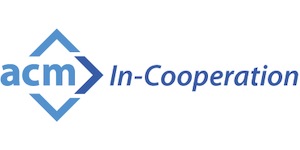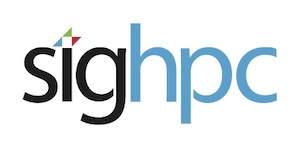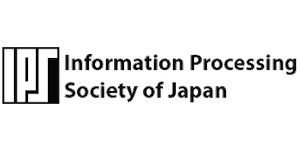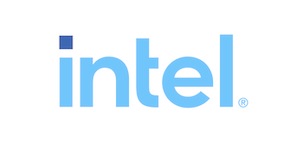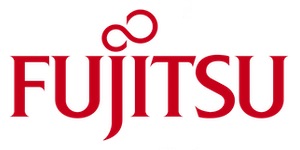
"Stepping forward to the Post Moore Era together"
"Integration of HPC & AI"
"Towards HPC Asia-Pacific/Pacific-Rim"
Photo: Supercomputer Fugaku in R-CCS (copyright © RIKEN)
HPC Asia 2022
Welcome to HPC Asia 2022
High performance computing (HPC) is a key technology to solve large problems in science, engineering, and business by utilizing computing power that has been continuously evolving. The International Conference on High Performance Computing in Asia-Pacific Region (HPC Asia) is an international conference series in the Asia Pacific region on HPC technologies, fostering exchange of ideas, research results and case studies related to all issues of high performance computing.
The 5th edition, HPC Asia 2022 will be held with the motto "Stepping forward to the Post Moore Era together." Although we are now entering the Exascale era, the Post Moore era will soon follow, and HPC Asia 2022 will provide a unique opportunity to discuss the challenges towards the Post Moore era. In addition, we need to pay close attention to the integration of HPC and AI: while the "convergence" of HPC and AI has been broadly discussed, the intensive "integration" of those will be essential towards computing in the Post Moore era.
Important Covid-19 Notice (September 28, 2021):
The conference will be held in "fully online" format.
Past HPC Asia
- HPC Asia 2018 in Tokyo, Japan (Jan 29-31, 2018)
- HPC Asia 2019 in Guangzhou, China (Jan 14-16, 2019)
- HPC Asia 2020 in Fukuoka, Japan (Jan 15-17, 2020)
- HPC Asia 2021 in Jeju, South Korea (Jan 20-22, 2021)
Host Organizations
- Information Processing Society of Japan (IPSJ)
- RIKEN Center for Computational Science (R-CCS)
- Kobe University
In cooperation with
Invited Speakers
- Ulrike Meier Yang, Lawrence Livermore National Laboratory (LLNL)
- Sadaf Alam, Swiss National Supercomputing Centre (CSCS)
- Hisashi Yashiro, National Institute for Environmental Studies (NIES)
Contact
- hpcasia2022 [at] sighpc.ipsj.or.jp (general information)
- hpcasia2022pc [at] cspp.cc.u-tokyo.ac.jp (about CfP)
Sponsors
Platinum Sponsors
Gold Sponsor
Silver Sponsors
Bronze Sponsors
Submission
Call for Posters (closed)
Call for Posters (click to expand) has been closed (on December 5, 2021).
Call for Papers (closed)
Call for Papers (click to expand) has been closed (on August 31, 2021).
Call for Workshops (closed)
Call for Workshops (click to expand) has been closed (on June 30, 2021).
Awards
Best Paper Award
In recognition of the outstanding contributions to HPCAsia 2022, we have selected the three best papers based on their reviews scores and also a discussion among members of the PC committee. During the conference, the best paper committee will select the best paper overall, taking into account the quality of the oral presentation, presentation materials, as well as technical impact.
Best Paper Award Winner
- "152K-computer-node parallel scalable implicit solver for dynamic nonlinear earthquake simulation" / Tsuyoshi Ichimura and Kohei Fujita (The University of Tokyo, RIKEN); Kentaro Koyama (Fujitsu Ltd.); Ryota Kusakabe and Yuma Kikuchi (The University of Tokyo); Takane Hori and Muneo Hori (Japan Agency for Marine-Earth Science and Technology); Lalith Maddegedara (The University of Tokyo); Noriyuki Ohi, Tatsuo Nishiki, and Hikaru Inoue (Fujitsu Ltd.); and Kazuo Minami, Seiya Nishizawa, Miwako Tsuji, and Naonori Ueda (RIKEN)
Best Paper Finalists
- "Performance Evaluation of Lattice Boltzmann Method for Fluid Simulation on A64FX Processor and Supercomputer Fugaku" / Seiya Watanabe and Changhong Hu (Kyushu University)
- "High Performance Gravitational N-body Simulations on Supercomputer Fugaku" / Tomoaki Ishiyama (Chiba University), Kohji Yoshikawa (University of Tsukuba), Ataru Tanikawa (The University of Tokyo)
- "152K-computer-node parallel scalable implicit solver for dynamic nonlinear earthquake simulation" / Tsuyoshi Ichimura and Kohei Fujita (The University of Tokyo, RIKEN); Kentaro Koyama (Fujitsu Ltd.); Ryota Kusakabe and Yuma Kikuchi (The University of Tokyo); Takane Hori and Muneo Hori (Japan Agency for Marine-Earth Science and Technology); Lalith Maddegedara (The University of Tokyo); Noriyuki Ohi, Tatsuo Nishiki, and Hikaru Inoue (Fujitsu Ltd.); and Kazuo Minami, Seiya Nishizawa, Miwako Tsuji, and Naonori Ueda (RIKEN)
- Best Paper Finalists Session (Day 1)
HPC Asia 2022 Best Student Poster Award in Memory of Hiroshi Nakashima
Professor Hiroshi Nakashima (Kyoto University, Japan) suddenly passed away on October 6, 2021 by a terrible traffic accident. He was a member of the HPC Asia Steering Committee, and his death is a great loss to the HPC community in Japan, Asia and the world. According to his valuable support to the HPC Asia 2022, the organizing committee has decided to bear his name in the Best Student Poster Award of HPC Asia 2022 in recognition of his excellent achievements in research and education in the HPC Community. We would like everybody to respect his achievements and to share loving memories of him.
- Eligibility: a poster presenter who is the first author of the poster and a student in BS, MS, and Ph. D courses.
- Evaluation: member of the award committee will comprehensively evaluate the 1-page extended abstract, the poster draft, the oral presentation in Poster blitz, and the discussion through Poster session core time (both the presented research result and the presentation quality are evaluated; this is not research award but poster presentation award).
- 1st, 2nd, and 3rd Prize (basically one for each prize) are planned.
- Poster program (Day 1)
Award Winners
1st Prize (two winners)
- Ryota Kusakabe (The University of Tokyo)
- Poster: [#105] "GPU-accelerated Multiphysics-based Seismic Wave Propagation Simulation and its Surrogate Model with Machine Learning" / Ryota Kusakabe (The University of Tokyo), Tsuyoshi Ichimura (The University of Tokyo), Kohei Fujita (The University of Tokyo), Muneo Hori (Japan Agency for Marine-Earth Science and Technology), Lalith Wijerathne (The University of Tokyo))
- Kazuki Furukawa (University of Tsukuba)
- Poster: [#118] "Efficiency and Effectiveness Analysis of a Scratchpad Memory on FPGA and GPU for Diffuse Radiation Transfer Simulation" / Kazuki Furukawa (University of Tsukuba), Yoshiki Yamaguchi (University of Tsukuba), Kohji Yoshikawa (University of Tsukuba), Ryohei Kobayashi (University of Tsukuba), Norihisa Fujita (University of Tsukuba), Taisuke Boku (University of Tsukuba), Masayuki Umemura (University of Tsukuba))
2nd Prize
- Ryota Miyagi (Kyoto University)
- Poster: [#129] "An FPGA Accelerator of Bayesian Network Structure Learning Using Parallel Calculation of Local Scores" / Ryota Miyagi (Kyoto University), Hideki Takase (The University of Tokyo))
3rd Prize
- Yen-Chen Chen (The University of Tokyo)
- Poster: [#134] "Cascadic Parareal Method for Explicit Time-Marching Schemes" / Yen-Chen Chen (The University of Tokyo), Kengo Nakajima (The University of Tokyo))
Schedule
- [Workshop] Proposal deadline: June 30, 2021 (AoE)
- [Workshop] Acceptance Notification: July 21, 2021 (AoE)
- [Paper] Abstract submissions due: August 6 August 16 August 31, 2021 (AoE)
- [Paper] Submissions due: August 13 August 23 August 31, 2021 (AoE)
- [Paper] Notification of Acceptance: October 14, 2021 (AoE)
- [Paper] Camera-ready papers due: November 1, 2021 (AoE)
- [Poster] 1-page extended abstract submission due: November 30 December 5, 2021 (AoE)
- [Poster] Notification of acceptance: December 3 December 8, 2021 (AoE)
- [Poster] Poster draft due: December 23 December 27, 2021 (AoE)
- Conference: January 12 (Wed) - 14 (Fri), 2022 (JST)
- Workshop day: January 14 (Fri), 2022 (JST)
Program & Proceedings
Conference Program
- Day 1 (Wednesday, January 12th)
- Day 2 (Thursday, January 13th)
- Day 3 (Friday, January 14th)
- Poster Session (Day 1)
Conference Proceedings
The conference proceedings of HPC Asia 2022 have been published by ACM and can be accessed free of charge by anyone for two weeks from January 12, 2022.
Workshops
HPC Asia 2022 will hold four workshops:
- IXPUG Workshop HPC Asia 2022
- Multi-scale, Multi-physics and Coupled Problems on Highly Parallel Systems (MMCP)
- International workshop on Arm-based HPC: Practice and Experience (IWAHPCE)
- International Workshop on RESource DISaggregation in High Performance Computing - Asia Edition (RESDIS-Asia 2022)
All of these workshops will be held at:
- Date & time: January 14 (Fri), 2022 (detail time is TBD)
- Place: same as the main conference
Please check the URL of each workshop for the information about submitting papers.
Registration
The registration is closed. If you are still interested to register please contact hpcasia2022_regist [at] googlegroups.com with the following information: first name, last name, (middle name), affiliation, country of residence, e-mail.
Registration fees
| Main track and workshops with proceedings (IXPUG and IWAHPCE) | 20,000 JPY |
| Poster session and workshop without proceedings (MMCP and RESDIS-Asia) | 5,000 JPY |
| Attendee | Free |
Notes
- For each accepted paper, poster, or workshop presentation, at least one (co-)author must register as a speaker by 15th Dec (AOE).
- There is no discount for early registration or for members of ACM or other organizations.
Venue
Conference Venue
Important Covid-19 Notice (September 28, 2021):
The conference will be held in "fully online" format.
The following is a list of venues that would be used if a physical event were held.
- RIKEN Center for Computational Science (R-CCS) (access maps in R-CCS website)):
The home of national flagship supercomputers in Japan: the K computer (2011-2019) and the Supercomputer Fugaku (2021-present). - Integrated Research Center of Kobe University:
Located next to the R-CCS building.
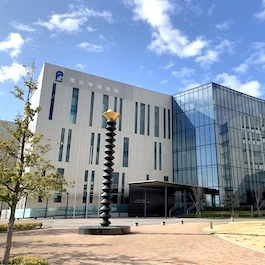
R-CCS building
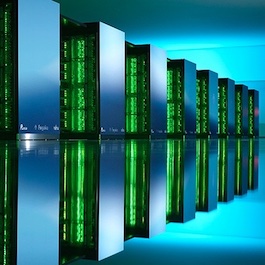
Supercomputer Fugaku
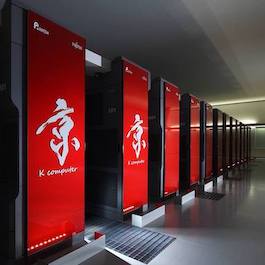
K computer (2011-2019)
Photos: Copyright © RIKEN
Kobe, Japan
Kobe is the capital of Hyogo Prefecture, with a population of 1.5 million, and is located about 30 kilometers west of Osaka, the second largest city in Japan. Surrounded by the sea and mountains, Kobe is known as one of Japan's historic international ports, and offers a rich international history and culture, as well as natural beauty of the sea and mountains.
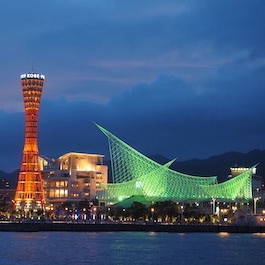
Kobe water front
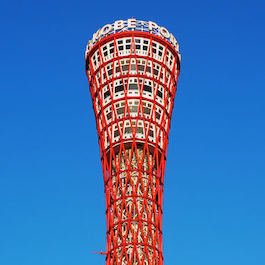
Port tower

China town

Kobe old foreign settlement
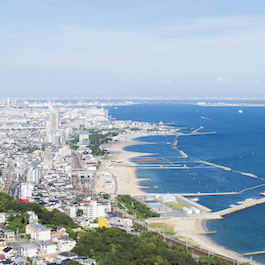
Suma beach

Akashi Kaikyo bridge
Photos of Kobe: Copyright © KOBE TOURISM BUREAU
Committees
Organizing Committee
- General Chair: Kengo Nakajima (University of Tokyo / RIKEN Center for Computational Science (R-CCS))
- General Vice-Chair: Miwako Tsuji (RIKEN Center for Computational Science (R-CCS))
- Program Co-Chair: Osni Marques (Lawrence Berkeley National Laboratory (LBNL))
- Program Co-Chair: Kento Sato (RIKEN Center for Computational Science (R-CCS))
- Local Arrangement Co-Chair: Hitoshi Murai (RIKEN Center for Computational Science (R-CCS))
- Local Arrangement Co-Chair: Hideyuki Usui (Kobe University)
- PC Deputy-Chair: Tetsuya Hoshino (University of Tokyo)
- Proceedings Chair: Daisuke Takahashi (University of Tsukuba)
- WS Chair: Masashi Horikoshi (Intel Corporation)
- Poster Chair: Takeshi Fukaya (Hokkaido University)
- Exhibition Co-Chair: Shinji Sumimoto (Fujitsu Limited)
- Exhibition Co-Chair: Takaaki Miyajima (Meiji University)
- Finance Chair: Atsuko Takefusa (National Institute of Informatics (NII))
- Publicity Chair: Daichi Mukunoki (RIKEN Center for Computational Science (R-CCS))
- Liaison/IPSJ HPC: Takeshi Iwashita (Hokkaido University)
- Liaison/Steering Committee: Taisuke Boku (University of Tsukuba)
- Digital Chair: Ryohei Kobayashi (University of Tsukuba)
Steering Committee
- Chair: Taisuke Boku (University of Tsukuba)
- Takeshi Iwasita (Hokkaido University)
- Satoshi Matsuoka (RIKEN Center for Computational Science (R-CCS))
- Hiroshi Nakashima (University of Kyoto)
- Mitsuhisa Sato (RIKEN Center for Computational Science (R-CCS) / University of Tsukuba)
- David Abramson (University of Queensland)
- Pavan Balaji (Facebook, Inc.)
- Wuchun Feng (Virginia Polytechnic Institute and State University (Virginia Tech))
- Soonwook Hwang (Korea Institute of Science and Technology Information (KISTI))
- Jaejin Lee (Seoul National University (SNU))
- Fang Pang Lin (National Center for High-performance Computing (NCHC))
- Serge Petiton (Maison de la Simulation (MDLS)
- Yutong Lu (National Supercomputing Center in Guangzhou (GZSC))
- Bernd Mohr (Jülich Supercomputing Centre (JSC))
- Depei Qian (Beihang University)
- Putchong Uthayopas (Kasetsart University)
- Jeffrey Vetter (Oak Ridge National Laboratory (ORNL))
Track Chairs
Application & Algorithms
- Christophe Calvin (French Alternative Energies and Atomic Energy Commission (CEA))
- Tetsuya Sakurai (University of Tsukuba)
- Rio Yokota (Tokyo Institute of Technology (Titech))
Programming Models & System Software
- Rajeev Thakur (Argonne National Laboratory (ANL))
- Barbara Chapman (Stony Brook University)
Data, Storage & Visualization
- Gabriel Antoniu (INRIA)
- Bodgan Nicolae (Argonne National Laboratory (ANL))
Architecture & Networks
- Mariam Kiran (Lawrence Berkeley National Laboratory (LBNL))
- Eishi Arima (Technical University of Munich (TUM))
Program Committee
Application & Algorithms
- Dongwook Lee (University of California Santa Cruz (UCSC))
- Edmond Chow (Georgia Institute of Technology (Georgia Tech))
- Erwin Laure (Max Planck Computing and Data Facility (MPCDF))
- France Boillod-Cerneux (French Alternative Energies and Atomic Energy Commission (CEA), Saclay)
- Hari Sundar (University of Utah School of Computing)
- Jerry Chou (National Tsing Hua University (NTHU))
- Keita Teranishi (Sandia National Laboratories)
- Michel Dayde (French National Centre for Scientific Research (CNRS) / Toulouse Institute of Computer Science Research (IRIT))
- Min Sun (Korea Institute of Science and Technology Information (KISTI))
- Naoyuki Onodera (Japan Atomic Energy Agency (JAEA))
- Niclas Jansson (KTH Royal Institute of Technology)
- Peng Chen (National Institute of Advanced Industrial Science and Technology (AIST), RIKEN Center for Computational Science (R-CCS))
- Pieter Ghysels (Lawrence Berkeley National Laboratory (LBNL))
- Tjerk P. Straatsma (Oak Ridge National Laboratory (ORNL))
Programming Models & System Software
- Amelie Chi Zhou (Shenzhen University)
- Antonio Pena (Barcelona Supercomputing Center (BSC))
- Balazs Gerofi (RIKEN Center for Computational Science (R-CCS))
- Didem Unat (Koç University)
- Jingling Xue (University of New South Wales (UNSW))
- Rohit Zambre (AMD Research)
- Sangmin Seo (Ground X)
- Shintaro Iwasaki (Argonne National Laboratory (ANL))
- Sunita Chandrasekaran (University of Delaware)
- Tapasya Patki (Lawrence Livermore National Laboratory (LLNL))
- Yutong Lu (National Supercomputing Center in Guangzhou (GZSC))
Data, Storage & Visualization
- Alexandru Costan (INRIA)
- Bingsheng HE (National University of Singapore (NUS))
- Dana Petcu (West University of Timișoara (WUT))
- Domenico Talia (Università della Calabria)
- François Tessier (INRIA)
- Hank Childs (University of Oregon)
- Hideyuki Kawashima (Keio University)
- Jorji Nonaka (RIKEN Center for Computational Science (R-CCS))
- Katerina Antypas (Lawrence Berkeley National Laboratory (LBNL))
- M. Mustafa Rafique (Rochester Institute of Technology (RIT))
- Maria S. Pérez (Universidad Politécnica de Madrid (UPM))
- Michael Schoettner (Heinrich Heine University Düsseldorf (HHU))
- Osamu Tatebe (University of Tsukuba)
- Suren Byna (Lawrence Berkeley National Laboratory (LBNL))
- Thomas Peterka (Argonne National Laboratory (ANL))
- Tung-Ju Hsieh (National Taipei University of Technology (Taipei Tech))
- Youngjae Kim (Sogang University)
Architecture & Networks
- Alex Sim (Lawrence Berkeley National Laboratory (LBNL))
- Anu Mercian (Hewlett Packard Labs)
- Bashir Mohammed (Lawrence Berkeley National Laboratory (LBNL))
- Giorgis Georgakoudis (Lawrence Livermore National Laboratory (LLNL))
- Josef Weidendorfer (Leibniz Supercomputing Centre (LRZ))
- Siddhartha Jana (Intel Corporation)
- Taylor Groves (Lawrence Berkeley National Laboratory (LBNL))
- Yuan He (Keio University)


